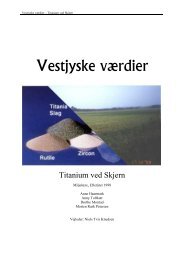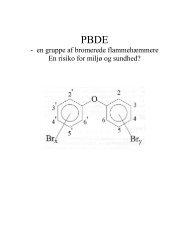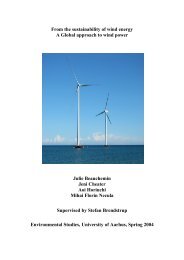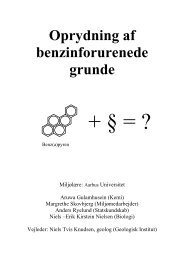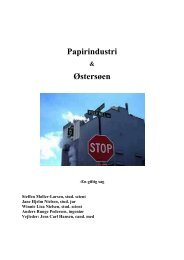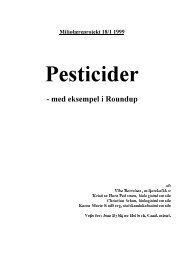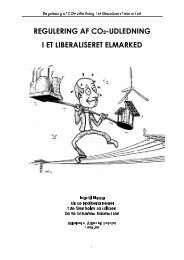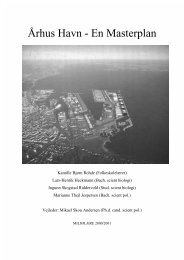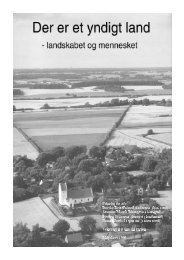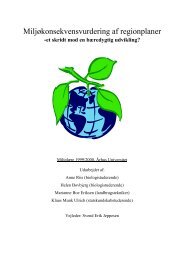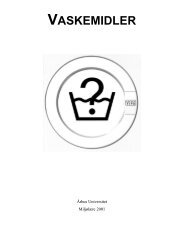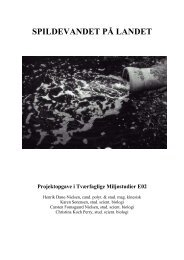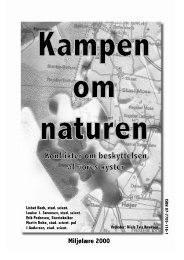University of Aarhus ECOTOURISM AS A WAY TO PROTECT ...
University of Aarhus ECOTOURISM AS A WAY TO PROTECT ...
University of Aarhus ECOTOURISM AS A WAY TO PROTECT ...
You also want an ePaper? Increase the reach of your titles
YUMPU automatically turns print PDFs into web optimized ePapers that Google loves.
Ecotourism as a sustainable way to protect nature<br />
The Galapagos Islands are now the fastest growing area in Ecuador concerning<br />
population, with an average increase <strong>of</strong> 8%. The islands permanent population<br />
leaped from a few hundred to 15.000 by the late 1990s (Honey, 1999).<br />
The new arrivals are straining limited resources, such as freshwater,<br />
electricity, telephone service and schools. This also raises problems with<br />
garbage and sewage disposal, and, more timber and parkland for houses and<br />
farms is needed.<br />
c. Rapidly increasing rates <strong>of</strong> introduction <strong>of</strong> alien species<br />
Introduction <strong>of</strong> non-native species has accelerated with the tourism boom,<br />
and they are endangering the survival <strong>of</strong> fragile and endemic species. On some<br />
islands, species <strong>of</strong> tortoise have become extinct because goats have eaten the<br />
vegetation they feed on, and rats have eaten their eggs. Goat and donkeys have<br />
also caused massive erosion, threatened the tortoises’ habitat and trampled their<br />
nests (Honey, 1999). The park service and the research station have made<br />
campaigns to kill the goats and donkeys and they have relocated some <strong>of</strong> the<br />
tortoises to a breeding centre, and restored the island’s ecosystem through<br />
fencing, seed banks and by reintroduction <strong>of</strong> native species to help boost the<br />
wild population.<br />
The government have - through the New Special Law - made some effort<br />
to track and eliminate alien species –plants, animals, insects, fungi, bacteria –<br />
that are brought by boat or plane by tourist, new immigrants and illegal fishing<br />
operations. They have made a quarantine plan, inspection <strong>of</strong> cargo and people<br />
arriving by boat or plane, and the research station activities have been<br />
concentrated on eradication, and breeding <strong>of</strong> endangered species.<br />
51



